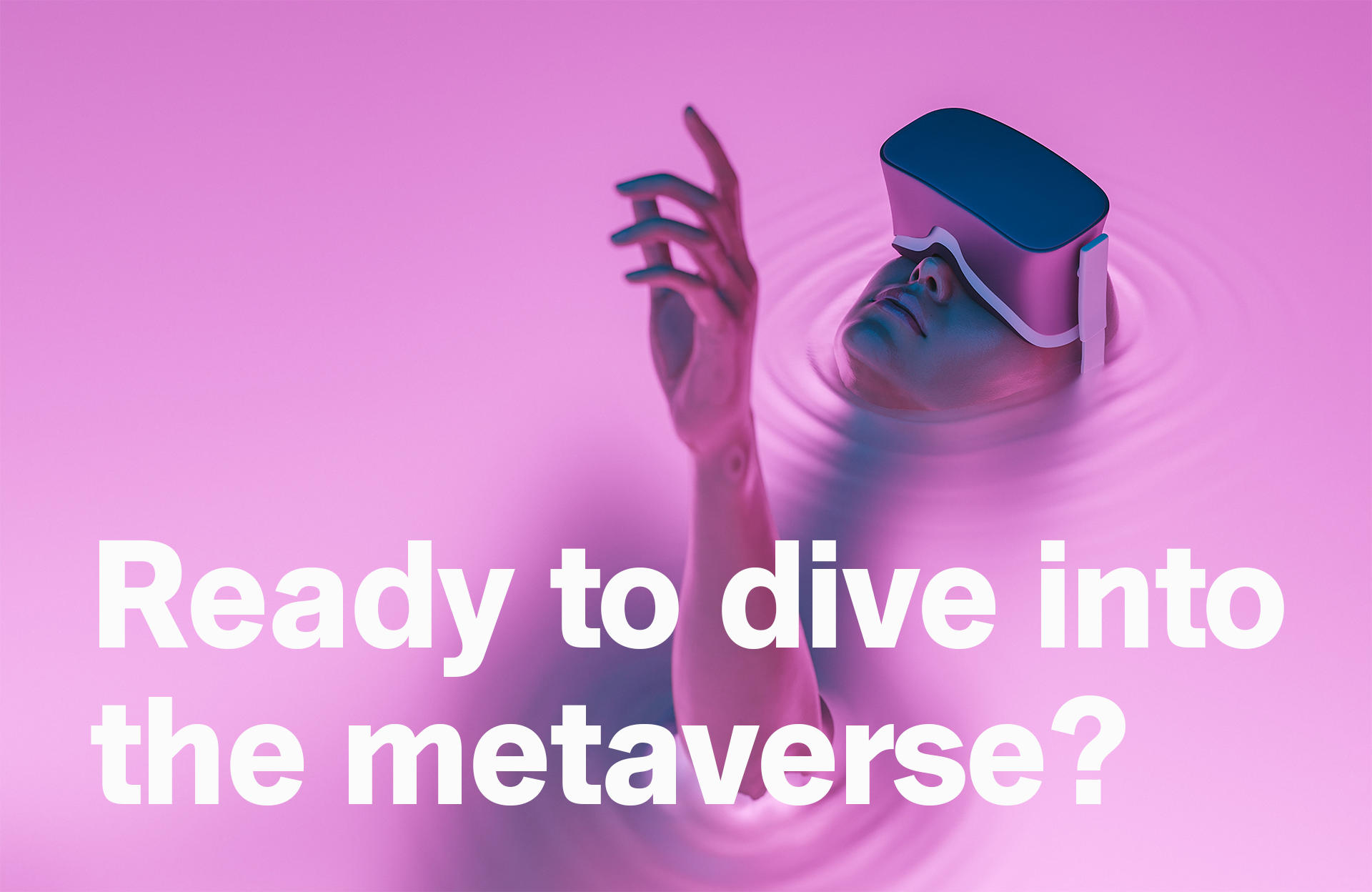
Then take a deep breath
If you turn back the clock a year, everyone was talking about it. All the time. In the media, at workplaces and to that extent on Facebook. On the one hand, it was a source of heaps of jokes, and on the other, a deeply fascinated technological development. It was almost the word of the year.
And then they slowly stopped talking about the metaverse. In the business world, especially because the marketing potential was difficult to see through. What do these virtual realities mean for content marketing? Advertising? Branding? No clear answers. Only small wonders.
But maybe also because in the end it still felt too abstract. It was as if we had come ten steps closer to being seriously presented with metaverses in our everyday life, without having moved a meter.
But now we’re talking about it. We must. Because in so many ways it is already here.

To understand what “metaverse” means, it might be beneficial to look at something that comes close to being that.
Since the beginning of the 00s, adults, young people and children have played computer games such as Second Life, World of Warcraft and Roblox – all games that many would describe as “proto-metaverses”.
Virtual worlds with their own rules, economic systems, and organic communities. Universes that constantly exist and run around, even when you’re not online. Small realities on top of our own.
And these are exactly the things that form the core of the metaverse concept. Whatever it is in the form of a computer game, an app, or a Virtual Reality simulation. And the fact that this has technically been around for 20 years proves that the metaverse must have come a long way today.

In recent times, especially Meta (which, despite the name, is not behind the concept of metaverse) and their “game” Horizon Worlds have been used as the best example of what a modern metaverse can be. If you want to experience this, however, it requires a Virtual Reality headset, which will probably become a common requirement for metaverses when we reach a few years further.
However, it is not only through high-tech glasses on your head that you can experience the latest in virtual reality.
Among other things, IKEA has been successful in using so-called “Augmented Reality”, which instead uses your phone’s camera to virtually change your surroundings. In the IKEA Place app, you can thus experience their furniture selection, directly on your own living room floor.
It is difficult to say whether you can definitively call IKEA’s app a metaverse. But the technology behind it at least fits well into the dialogue.
Of course, we also have to stop by the metaverse in relation to marketing
And now, the million-dollar question: what does metaverse mean for digital marketing?
We’ll get ahead of you: we don’t have the answer. But we have fragments of it. Because we know that the marketing potential in the metaverse is great. Very great.
In a concept that strives to create small, complete universes, it is – as in reality – only the imagination that sets limits. It is us who create the marketing, which also creates the potential. Because as the Meta Connect website writes:
“Let’s build beautiful worlds, together”.
But let’s try to get down to business…
1
Several companies have started experimenting with virtual tours of everything from office buildings to major tourist cities.
2
Major brands have for several years ventured into virtual sponsorships to promote movies, games and more.
3
It is becoming more and more typical to see brands make use of so-called NFTs in their digital branding.
4
And we have even come so far that virtual concerts have been held. With real artists. Playing live.
Looking at the above, banner advertising in a Virtual Reality universe suddenly doesn’t seem so far-fetched. And it is simply because the rules for digital marketing that we know from reality, by far, also apply to marketing in the metaverse.
Metaverse is not just a new marketing channel alongside your social media and website. It will probably be a new marketing reality that you will have to deal with. Not yet – but one day.

Not much. Metaverse is, from the perspective of the general population, still a very new phenomenon.
You most likely won’t find a large portion of your customers in one of the various metaverses. So, to market your business here can easily feel like shooting with scattershot with your back to the target.
One thing is certain, though: it’s coming. At full speed. So, it’s about keeping a close eye on how it develops. Because at one point or another, the name of the game is no longer to wait and see – but to be among the first to take the leap and exploit the marketing potential in the metaverse.
And you could very well be a part of the first movers.